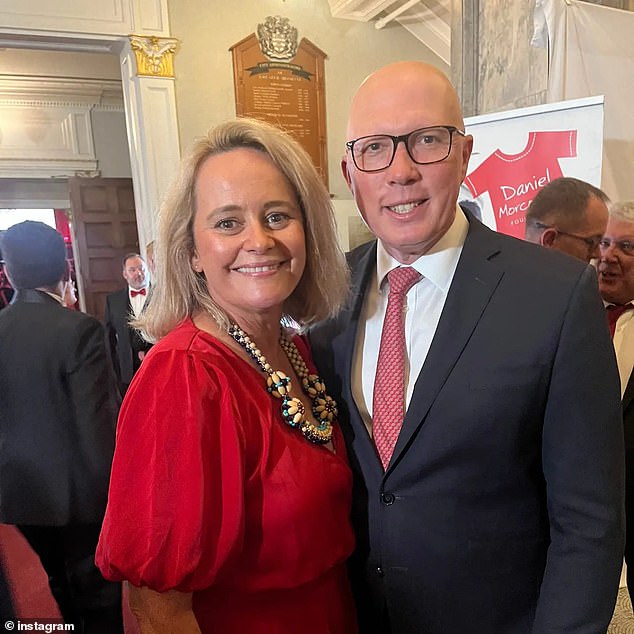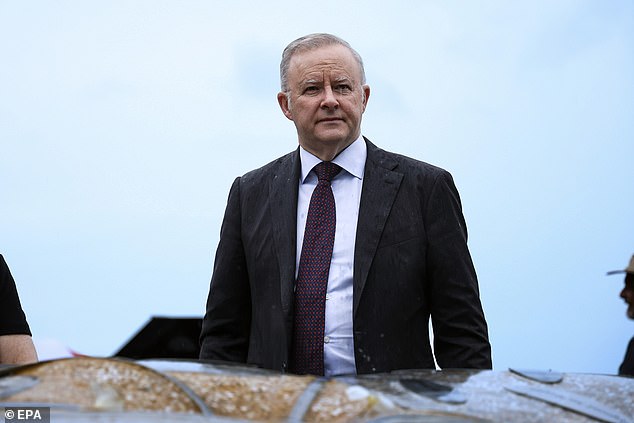Anthony Albanese’s support base is collapsing in New South Wales and Victoria, just months before he seeks re-election in a federal election, new polls have revealed.
The Labor primary vote has fallen from 33 per cent to 29 per cent in Australia’s two most populous states, putting crucial seats and Labor’s majority in doubt, according to a Resolve Strategic poll for nine newspapers.
By contrast, the Coalition, led by Peter Dutton, has seen dramatic momentum in Victoria, where its primary vote rose from 33 to 38 per cent, while support in New South Wales rose from 37 to 38 per cent. .
The news for Labor is also bad in Western Australia, where its primary vote has fallen from 37 to 30 per cent since the last election, while the Coalition’s has risen from 35 to 37 per cent.
A reversal could occur in the four seats Labor took from the Coalition in 2022 (Pearce, Hasluck, Swan and Tangney), and a new electorate in Bullwinkel will also be contested at the next federal election.
The Coalition’s resurgence in Victoria could also be bad news for the Teals as it targets the two Melbourne seats the Liberals lost in the last election.
Monique Ryan controls Kooyong by a margin of just 2.2 percent and Zoe Daniel controls Goldstein by 3.3 percent, according to ABC’s election pendulum.
Anthony Albanese faces an election next year with Labor support falling to low levels in New South Wales and Victoria.
Overall, the Resolve Political Monitor showed the Coalition leading with 51 per cent support on two-party terms, compared to Labor on 49 per cent, assuming preferences matched those of the last election.
However, the close result was within the margin of error, indicating that the federal election remains closely contested and could end in a hung parliament.
Albanese maintained a slight lead over Dutton as preferred premier in Victoria, where he leads 36 to 34 per cent, and in New South Wales, where he has a 38 to 36 lead.
Resolve director Jim Reed said the survey indicates Labor is in danger of losing power after just one term in government, for the first time at federal level in Australia since 1931.
‘In 2022, we correctly anticipated that Labor would win with less than a third of the primary vote, that it would win seats in Western Australia, that the Greens would win seats in Brisbane and that the Teals would take the heart of the Liberals. “said Mr. Reed.

Peter Dutton (pictured right with wife Kirilly) is almost neck and neck with Albanese as preferred prime minister.
“This time we will look for things that go against conventional wisdom, such as the possibility of a first-term government being removed, the Liberals gaining seats in Victoria, the Greens losing seats and independents being denied a seat. second term.’
While the Greens have held their primary vote steady at 12 per cent nationally, they have fallen from 13 per cent to 11 per cent in Queensland, which could jeopardize the three seats they won from the main parties in the last elections.
Overall, Queensland was relatively unchanged from the previous quarterly analysis of the surveys.
Labor saw a slight drop in its primary vote from 27 to 26 per cent and the Coalition rose from 40 to 41 per cent.
Resolve Political Monitor’s quarterly polling analysis is based on responses from 4,831 voters from October to December 2024.
Labor has also been losing ground in Newspolls, conducted for The Australian.
A Newspolls analysis conducted during the last quarter of 2024 shows that voters between 35 and 49 years old, commonly mortgage holders who determine many swing electorates, are avoiding the Albanian government.
When questioned about his declining popularity at a news conference on Sunday, the Prime Minister downplayed the issue.
“What I’m concerned about is helping my fellow Australians,” he said. ‘I have been underestimated throughout my political life.
‘I’m focused on making a difference to the cost of living, making a difference to the plans we have for the future.
“We have already announced a number of changes, including addressing issues of intergenerational equity by writing off 20 per cent of HECS debts for individuals if we are re-elected.”


